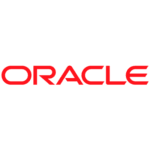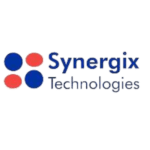Course Offered
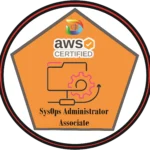
AWS Certified SysOps Administrator – Associate with Diana’s
Who is this course for? The “AWS Certified SysOps Administrator – Associate with Diana’s” course is designed for individuals aspiring to become AWS SysOps Administrators or those currently working in a system operations role who want to validate their skills and knowledge in managing and operating applications on the AWS platform. This course is suitable for system administrators, operations engineers, and IT professionals aiming to enhance their career prospects in cloud computing. The Tools We Use: Throughout this course, we will utilize a variety of tools and services offered by Amazon Web Services (AWS). These may include AWS Management Console, AWS Command Line Interface (CLI), AWS Identity and Access Management (IAM), Amazon EC2 instances, Amazon RDS databases, AWS CloudWatch for monitoring, AWS Elastic Beanstalk for application deployment, and more.What You’ll Learn
By enrolling in the “AWS Certified SysOps Administrator – Associate with Diana’s” course, you will gain a comprehensive understanding of various AWS services and best practices for system operations. The course covers the following key topics:- AWS Fundamentals: Explore the foundational concepts of AWS, including its global infrastructure, core services, and architectural principles.
- Identity and Access Management (IAM): Learn how to manage user access and permissions using IAM, create security groups, and implement multi-factor authentication (MFA).
- EC2 Instances and Networking: Understand the deployment and management of Amazon EC2 instances, including launching instances, configuring networking, and implementing load balancing and auto scaling.
- Storage and Content Delivery: Explore AWS storage services such as Amazon S3 for object storage, Amazon EBS for block storage, and Amazon CloudFront for content delivery.
- Databases on AWS: Learn about Amazon RDS for managed relational databases, Amazon DynamoDB for NoSQL databases, and Amazon Redshift for data warehousing.
- Monitoring and Metrics: Gain insights into monitoring AWS resources using CloudWatch, setting up alarms, creating custom metrics, and analyzing logs.
- High Availability and Fault Tolerance: Discover strategies to achieve high availability and fault tolerance using AWS services like Elastic Load Balancing, Route 53, and Auto Scaling.
- Security and Compliance: Understand AWS security best practices, including securing network communications, encrypting data at rest and in transit, and managing compliance.
- Deployment and Operations: Learn about AWS deployment and management services such as AWS Elastic Beanstalk, AWS OpsWorks, and AWS CloudFormation.
- Cost Optimization: Explore techniques to optimize costs in AWS, including rightsizing instances, leveraging AWS Cost Explorer, and implementing cost allocation tags.
Prerequisites
To make the most of this course, participants should have a basic understanding of cloud computing concepts and general IT knowledge. Familiarity with Linux command line interface (CLI) and networking fundamentals would be beneficial. No prior experience with AWS is required, but a strong interest in cloud computing and a desire to pursue a career as a SysOps Administrator are essential prerequisites for this course.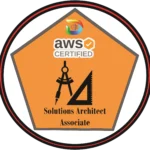
AWS Certified Solutions Architect – Associate with Diana’s
Who is this course for? The “AWS Certified Solutions Architect – Associate with Diana’s” course is designed for IT professionals who are interested in becoming certified in AWS solutions architecture. This course is suitable for system administrators, developers, and individuals looking to enhance their knowledge and skills in designing and implementing scalable and reliable applications on the Amazon Web Services (AWS) platform. The Tools We Use: Throughout this course, we will extensively utilize various AWS services and tools. Some of the key tools and technologies covered in this course may include Amazon EC2 (Elastic Compute Cloud), Amazon S3 (Simple Storage Service), Amazon RDS (Relational Database Service), Amazon VPC (Virtual Private Cloud), AWS Lambda, and AWS CloudFormation. Additionally, we will explore the AWS Management Console and the AWS Command Line Interface (CLI) for managing and deploying AWS resources.What You’ll Learn
By enrolling in the “AWS Certified Solutions Architect – Associate with Diana’s” course, you will gain a comprehensive understanding of AWS architecture and the skills necessary to design, deploy, and manage applications on the AWS platform. The course covers the following key areas:- AWS Fundamentals: Get introduced to the core concepts of AWS, including the global infrastructure, key services, and account management.
- Compute Services: Learn about the various compute services offered by AWS, such as EC2 instances, Auto Scaling, and Elastic Beanstalk, and how to architect scalable and resilient applications.
- Storage and Database Services: Explore AWS storage services like S3, Glacier, and EBS, as well as database services like RDS and DynamoDB, to effectively manage data storage and retrieval in your applications.
- Networking and Content Delivery: Understand AWS networking concepts, including VPC, Route 53, and CloudFront, to design secure and high-performance network architectures.
- Security and Identity Management: Learn about AWS security features, including IAM (Identity and Access Management), AWS Organizations, and key management services, to ensure the security of your AWS resources.
- Application Integration and Messaging: Discover how to integrate your applications with AWS services like SQS (Simple Queue Service), SNS (Simple Notification Service), and SWF (Simple Workflow Service) for efficient communication and coordination.
- Monitoring, Logging, and Troubleshooting: Gain insights into AWS monitoring and logging services like CloudWatch, CloudTrail, and X-Ray, and learn troubleshooting techniques to maintain application health and performance.
- Architecting for High Availability and Scalability: Learn to design fault-tolerant and highly available architectures using AWS services such as ELB (Elastic Load Balancer), Auto Scaling, and Route 53.
Prerequisites
To make the most of this course, participants should have a basic understanding of cloud computing concepts and familiarity with IT infrastructure and networking principles. Basic knowledge of operating systems, such as Linux and Windows, and experience with scripting or programming languages would be beneficial. Additionally, familiarity with general AWS services and concepts will be helpful but is not mandatory.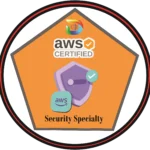
AWS Certified Security – Specialty with Diana’s
Who is this course for? The “AWS Certified Security – Specialty with Diana’s” course is designed for IT professionals, security engineers, and system administrators who want to enhance their knowledge and expertise in securing applications and infrastructure on the Amazon Web Services (AWS) platform. This course is suitable for individuals who are preparing to take the AWS Certified Security – Specialty certification exam or those who wish to deepen their understanding of AWS security best practices. The Tools We Use: Throughout this course, we will utilize various tools and services provided by AWS to implement and manage security measures. Some of the key tools and technologies covered in this course may include AWS Identity and Access Management (IAM), AWS CloudTrail, AWS Security Hub, AWS GuardDuty, AWS WAF (Web Application Firewall), AWS Inspector, and AWS Key Management Service (KMS).What You’ll Learn
By enrolling in the “AWS Certified Security – Specialty with Diana’s” course, you will gain comprehensive knowledge and skills in securing AWS environments. The course covers a wide range of topics, including:- AWS Security Fundamentals: Understand the core principles of AWS security, shared responsibility model, and the various AWS security services available.
- Identity and Access Management (IAM): Learn how to create and manage AWS identities, roles, and permissions to control access to AWS resources effectively.
- Data Protection: Explore techniques and services for encrypting data at rest and in transit, managing encryption keys, and implementing secure data storage solutions.
- Network Security: Understand AWS network security features, including Virtual Private Cloud (VPC), security groups, network ACLs, and AWS PrivateLink.
- Incident Response and Compliance: Discover how to effectively respond to security incidents, implement logging and monitoring, and ensure compliance with relevant regulations and industry standards.
- Infrastructure Security: Learn best practices for securing AWS infrastructure, including EC2 instances, databases, serverless architectures, and containerized applications.
- Web Application Security: Explore techniques for protecting web applications hosted on AWS, including using AWS WAF, securing APIs, and implementing secure coding practices.
- Security Automation and DevSecOps: Understand how to automate security tasks using AWS services and integrate security into the DevOps workflow to achieve continuous security and compliance.
Prerequisites
To make the most of this course, participants should have a solid understanding of AWS fundamentals and experience working with AWS services. Familiarity with basic networking concepts and security principles will be beneficial. It is recommended to have hands-on experience in deploying and managing AWS resources. A strong desire to enhance one’s skills in AWS security and a commitment to achieving the AWS Certified Security – Specialty certification are essential prerequisites for this course.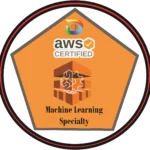
AWS Certified Security – Specialty with Diana’s
Who is this course for? The “AWS Certified Security – Specialty with Diana’s” course is designed for IT professionals, security engineers, and system administrators who want to enhance their knowledge and expertise in securing applications and infrastructure on the Amazon Web Services (AWS) platform. This course is suitable for individuals who are preparing to take the AWS Certified Security – Specialty certification exam or those who wish to deepen their understanding of AWS security best practices. The Tools We Use: Throughout this course, we will utilize various tools and services provided by AWS to implement and manage security measures. Some of the key tools and technologies covered in this course may include AWS Identity and Access Management (IAM), AWS CloudTrail, AWS Security Hub, AWS GuardDuty, AWS WAF (Web Application Firewall), AWS Inspector, and AWS Key Management Service (KMS).What You’ll Learn
By enrolling in the “AWS Certified Security – Specialty with Diana’s” course, you will gain comprehensive knowledge and skills in securing AWS environments. The course covers a wide range of topics, including:- AWS Security Fundamentals: Understand the core principles of AWS security, shared responsibility model, and the various AWS security services available.
- Identity and Access Management (IAM): Learn how to create and manage AWS identities, roles, and permissions to control access to AWS resources effectively.
- Data Protection: Explore techniques and services for encrypting data at rest and in transit, managing encryption keys, and implementing secure data storage solutions.
- Network Security: Understand AWS network security features, including Virtual Private Cloud (VPC), security groups, network ACLs, and AWS PrivateLink.
- Incident Response and Compliance: Discover how to effectively respond to security incidents, implement logging and monitoring, and ensure compliance with relevant regulations and industry standards.
- Infrastructure Security: Learn best practices for securing AWS infrastructure, including EC2 instances, databases, serverless architectures, and containerized applications.
- Web Application Security: Explore techniques for protecting web applications hosted on AWS, including using AWS WAF, securing APIs, and implementing secure coding practices.
- Security Automation and DevSecOps: Understand how to automate security tasks using AWS services and integrate security into the DevOps workflow to achieve continuous security and compliance.
Prerequisites
To make the most of this course, participants should have a solid understanding of AWS fundamentals and experience working with AWS services. Familiarity with basic networking concepts and security principles will be beneficial. It is recommended to have hands-on experience in deploying and managing AWS resources. A strong desire to enhance one’s skills in AWS security and a commitment to achieving the AWS Certified Security – Specialty certification are essential prerequisites for this course.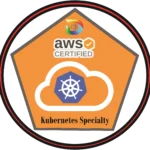
AWS Certified Kubernetes – Specialty with Diana’s
Who is this course for? This course is designed for individuals who want to enhance their skills in managing and deploying applications on Kubernetes using Amazon Web Services (AWS). It is suitable for software developers, system administrators, DevOps engineers, and anyone interested in gaining expertise in AWS Kubernetes services.The tools we use
Throughout the course, we will leverage several tools and technologies to work with Kubernetes on AWS. These include:- Amazon Elastic Kubernetes Service (EKS): We will extensively use EKS to create and manage Kubernetes clusters.
- AWS CLI: The AWS Command Line Interface (CLI) will be used for interacting with various AWS services and resources.
- AWS Management Console: We will utilize the web-based console to configure and manage EKS clusters and related services.
- kubectl: This command-line tool is used for interacting with Kubernetes clusters, and we will utilize it to deploy and manage applications.
- Helm: Helm is a package manager for Kubernetes that simplifies the deployment and management of applications. We will utilize Helm charts to deploy and manage applications on EKS.
What you’ll learn
By the end of this course, you will have a comprehensive understanding of AWS Kubernetes services and be well-prepared to pass the AWS Certified Kubernetes – Specialty exam. You will learn the following key concepts and skills:- Understanding Kubernetes: Gain a deep understanding of Kubernetes architecture, core components, and its role in container orchestration.
- Deploying Kubernetes on AWS: Learn how to set up and manage Kubernetes clusters using Amazon EKS, including cluster creation, scaling, and monitoring.
- Application Deployment: Master the deployment of applications on EKS using various methods, such as using YAML manifests, Helm charts, and deploying from container registries.
- Networking and Security: Explore networking and security considerations in Kubernetes on AWS, including managing VPC configurations, load balancers, and securing cluster communication.
- Cluster Operations and Management: Learn how to operate and manage EKS clusters effectively, including scaling, patching, and troubleshooting common issues.
- Monitoring and Logging: Understand how to monitor and log Kubernetes clusters using AWS services like CloudWatch, CloudTrail, and AWS X-Ray.
- Autoscaling and High Availability: Discover techniques to autoscale Kubernetes workloads based on demand and ensure high availability using AWS services like Auto Scaling Groups and EKS managed node groups.
- Advanced Topics: Dive into advanced topics such as deploying stateful applications, managing storage in Kubernetes, and integrating with other AWS services like Amazon RDS and Amazon S3.
Prerequisites
To make the most of this course, you should have prior experience with AWS services and basic knowledge of Kubernetes concepts. Familiarity with containerization and Docker will also be beneficial. It is recommended to have some hands-on experience with AWS services, particularly EC2, VPC, and IAM. A basic understanding of networking and Linux command-line will help you navigate the course content effectively.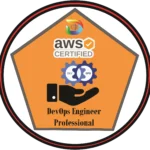
AWS Certified DevOps Engineer – Professional with Diana’s
Who is this course for? The “AWS Certified DevOps Engineer – Professional with Diana’s” course is tailored for experienced IT professionals and DevOps engineers who aim to master the advanced concepts and best practices of deploying and managing applications on Amazon Web Services (AWS) cloud platform. This course is ideal for individuals looking to enhance their expertise in building scalable, reliable, and secure AWS-based applications using DevOps principles.The Tools We Use
Throughout this course, you will gain hands-on experience with a comprehensive set of tools and services offered by AWS. Some of the key tools and technologies covered in the course include:- AWS Elastic Beanstalk: A fully managed service for deploying and scaling web applications and services.
- AWS CodePipeline: A continuous integration and continuous delivery (CI/CD) service that automates the build, test, and deployment of applications.
- AWS CloudFormation: A service for provisioning and managing AWS resources through templates.
- AWS Lambda: A serverless computing service for running code without provisioning or managing servers.
- AWS Elastic Container Service (ECS): A container management service for deploying and scaling Docker containers.
- AWS Identity and Access Management (IAM): A service for managing access to AWS resources securely.
- AWS CloudWatch: A monitoring service for AWS resources and applications.
- AWS Elastic Beanstalk: A service for automatic scaling and application health monitoring.
What You’ll Learn
By enrolling in the “AWS Certified DevOps Engineer – Professional with Diana’s” course, you will acquire in-depth knowledge and skills required to excel in the AWS DevOps environment. The course covers a wide range of topics, including:- Advanced AWS Concepts: Dive into advanced AWS services and architecture, understanding their use cases and benefits.
- Infrastructure as Code: Learn how to define and manage AWS infrastructure using code and templates with AWS CloudFormation.
- Continuous Integration and Continuous Delivery (CI/CD): Implement CI/CD pipelines using AWS CodePipeline and other supporting services.
- Serverless Applications: Explore AWS Lambda and its integration with other AWS services to build serverless applications.
- Containerization: Utilize AWS ECS and Docker to manage and orchestrate containerized applications effectively.
- Monitoring and Logging: Set up monitoring and logging solutions using AWS CloudWatch and related services to ensure application health and performance.
- Security Best Practices: Implement secure AWS architectures, adhere to best security practices, and manage IAM for secure access control.
- High Availability and Scalability: Design and deploy highly available and scalable applications on AWS to meet user demands.
- Disaster Recovery: Plan and implement disaster recovery strategies to ensure business continuity.
Prerequisites
To make the most of this course, participants should have prior experience in working with AWS services and a solid understanding of cloud computing concepts. Familiarity with DevOps principles, CI/CD practices, and basic programming skills are essential prerequisites. Ideally, candidates should have completed the AWS Certified Developer – Associate or AWS Certified SysOps Administrator – Associate certification, or possess equivalent knowledge and experience in AWS.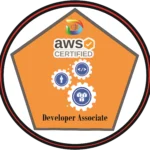
AWS Certified Developer – Associate with Diana’s
Who is this course for: This course is designed for individuals who are interested in becoming AWS Certified Developers – Associate level. It is suitable for software developers, web developers, and IT professionals who want to enhance their skills in developing applications on the Amazon Web Services (AWS) platform.The tools we use
Throughout this course, we will utilize a range of tools and services provided by AWS to develop and deploy applications. Some of the key tools and services covered in this course include:- AWS Management Console: The web-based interface for accessing and managing various AWS services.
- AWS CLI (Command Line Interface): A command-line tool that allows you to interact with AWS services using commands.
- AWS SDKs (Software Development Kits): Libraries and tools that enable developers to integrate AWS services into their applications using programming languages such as Java, Python, and .NET.
- AWS Elastic Beanstalk: A fully managed service for deploying and scaling web applications.
- AWS Lambda: A serverless compute service that lets you run code without provisioning or managing servers.
- AWS DynamoDB: A fast and flexible NoSQL database service for applications that require low-latency data access.
- AWS S3 (Simple Storage Service): An object storage service for storing and retrieving any amount of data from anywhere on the web.
- AWS CloudFormation: A service that allows you to create and manage AWS resources using JSON or YAML templates.
- AWS Identity and Access Management (IAM): A service for managing user access and permissions to AWS resources.
- AWS architecture and core services: Learn about the fundamentals of AWS, including EC2 instances, S3 buckets, VPCs, and security best practices.
- Application deployment and management: Explore techniques for deploying and managing applications using services like Elastic Beanstalk, AWS CloudFormation, and AWS CLI.
- Serverless application development: Dive into the world of serverless computing with AWS Lambda, API Gateway, and DynamoDB, and learn how to build scalable and cost-effective applications.
- Application integration and messaging: Discover how to integrate your applications with other AWS services like SNS, SQS, and Simple Workflow Service (SWF).
- Monitoring, troubleshooting, and debugging: Learn how to monitor and troubleshoot your applications using AWS CloudWatch, X-Ray, and other debugging tools.
- Security and authentication: Understand how to secure your applications and implement authentication mechanisms using IAM, Cognito, and other AWS security services.
Prerequisites
To make the most of this course, it is recommended that you have prior programming experience and a basic understanding of web technologies such as HTML, CSS, and JavaScript. Familiarity with cloud computing concepts and general knowledge of AWS services will also be beneficial.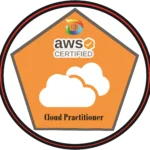
AWS Certified Cloud Practitioner with Diana’s
Who is this course for? The “AWS Certified Cloud Practitioner with Diana’s” course is designed for individuals who are new to Amazon Web Services (AWS) and want to gain a foundational understanding of cloud computing and AWS services. This course is ideal for IT professionals, system administrators, developers, and anyone interested in pursuing a career in cloud computing or AWS-related roles. The Tools We Use: Throughout this course, you will have hands-on experience with various tools and services provided by Amazon Web Services. These tools may include the AWS Management Console, AWS Command Line Interface (CLI), AWS Elastic Beanstalk, AWS Identity and Access Management (IAM), and AWS Simple Storage Service (S3), among others.What You’ll Learn
By enrolling in the “AWS Certified Cloud Practitioner with Diana’s” course, you will gain a comprehensive understanding of AWS cloud concepts, services, and best practices. The course covers the following key topics:- Introduction to AWS: Explore the fundamentals of cloud computing, the AWS global infrastructure, and the core services offered by AWS.
- AWS Architecture and Security: Understand the architectural principles of AWS, including regions, availability zones, and data centers. Learn about AWS security measures, compliance, and shared responsibility models.
- AWS Services: Gain familiarity with essential AWS services, such as EC2 (Elastic Compute Cloud), S3 (Simple Storage Service), RDS (Relational Database Service), and VPC (Virtual Private Cloud).
- AWS Pricing and Billing: Learn about AWS pricing models, cost optimization strategies, and how to estimate costs for various AWS services.
- AWS Deployment and Management: Explore AWS deployment options, including AWS Elastic Beanstalk, AWS CloudFormation, and AWS OpsWorks. Understand how to manage and monitor AWS resources effectively.
- AWS Identity and Access Management (IAM): Discover how to control access to AWS resources using IAM, create users and groups, and apply security best practices.
- AWS Well-Architected Framework: Learn about the five pillars of the AWS Well-Architected Framework: operational excellence, security, reliability, performance efficiency, and cost optimization.
- Exam Preparation: Get guidance and practice exercises to prepare for the AWS Certified Cloud Practitioner exam, including exam format, study tips, and sample questions.
Prerequisites
No prior experience with AWS is required for this course. However, a basic understanding of cloud computing concepts and general IT knowledge will be beneficial. Familiarity with networking and storage concepts will also be advantageous. This course is suitable for beginners who want to start their journey into AWS cloud computing.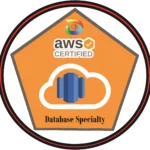
AWS Certified Database – Specialty with Diana’s
Who is this course for? The “AWS Certified Database – Specialty with Diana’s” course is designed for professionals who want to validate their expertise in designing, deploying, and managing AWS database solutions. This course is suitable for database administrators, solutions architects, and individuals working with databases in an AWS environment. It is ideal for those who wish to enhance their skills and earn the prestigious AWS Certified Database – Specialty certification. The Tools We Use: Throughout this course, you will gain hands-on experience with a variety of tools and services provided by Amazon Web Services (AWS) for managing databases. These tools may include Amazon RDS (Relational Database Service), Amazon DynamoDB, Amazon Aurora, Amazon Redshift, AWS Database Migration Service, and others.What You’ll Learn
By enrolling in the “AWS Certified Database – Specialty with Diana’s” course, you will acquire comprehensive knowledge of AWS database services and develop the skills needed to design, deploy, and manage highly available, scalable, and secure database solutions. The course covers various topics, including:- AWS Database Fundamentals: Understand the core concepts and services of AWS databases, including relational databases, NoSQL databases, data warehousing, and data migration strategies.
- Database Design and Architecture: Learn how to design efficient, scalable, and highly available database solutions using AWS services and best practices. Explore concepts such as sharding, replication, partitioning, and data consistency models.
- Database Deployment and Management: Gain practical experience in deploying and managing AWS database services, including provisioning, monitoring, and optimizing database performance. Learn about backup and restore strategies, security configurations, and disaster recovery options.
- Data Migration and Integration: Discover techniques for migrating databases to AWS, both online and offline, using AWS Database Migration Service (DMS) and other tools. Learn about data integration with other AWS services and third-party systems.
- Database Security and Compliance: Understand the security features and best practices for protecting AWS databases. Learn about encryption options, access control mechanisms, auditing, and compliance with industry standards and regulations.
- Database Performance and Optimization: Learn how to monitor, analyze, and optimize the performance of AWS databases. Explore performance tuning techniques, indexing strategies, caching mechanisms, and troubleshooting approaches.
- Database Monitoring and Troubleshooting: Gain insights into monitoring tools and practices for AWS databases. Learn how to detect and resolve common database issues, handle performance bottlenecks, and troubleshoot connectivity problems.
- High Availability and Disaster Recovery: Explore strategies for achieving high availability and fault tolerance in AWS database solutions. Learn about database replication, automated backups, multi-region deployments, and disaster recovery planning.
Prerequisites
To make the most of this course, participants should have a solid understanding of basic database concepts, such as data modeling, SQL queries, and database management principles. Familiarity with AWS fundamentals, including core services like EC2 and S3, would be beneficial. It is recommended to have some hands-on experience with AWS services and databases. Additionally, a strong desire to advance one’s skills in AWS database technologies and pursue the AWS Certified Database – Specialty certification is essential.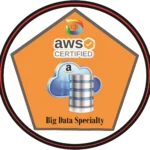
AWS Certified Big Data – Specialty with Diana’s
Who is this course for? This course is designed for data professionals, solution architects, developers, and anyone interested in gaining expertise in big data solutions using Amazon Web Services (AWS). Whether you are a beginner or an experienced professional looking to enhance your knowledge, this course is tailored to help you prepare for the AWS Certified Big Data – Specialty exam. The tools we use: Throughout this course, we will extensively cover various AWS services and tools that are crucial for working with big data. Some of the key tools we will focus on include:- Amazon S3 (Simple Storage Service)
- Amazon Redshift
- Amazon EMR (Elastic MapReduce)
- AWS Glue
- Amazon Kinesis
- AWS Lambda
- Amazon QuickSight
- AWS Data Pipeline
- Amazon Athena
- Amazon DynamoDB
What you’ll learn
By the end of this course, you will have a deep understanding of big data concepts, architecture, and how to implement them using AWS services. The course will cover the following topics:- Design and implement AWS big data services to process and analyze large datasets.
- Use AWS services to optimize the data lifecycle and extract valuable insights from data.
- Understand and apply big data architectural patterns to solve real-world business problems.
- Implement best practices for data security, data encryption, and data access control in an AWS environment.
- Configure and manage big data workflows using AWS services like EMR, Glue, and Data Pipeline.
- Integrate and analyze streaming data using Amazon Kinesis.
- Build scalable and resilient data processing solutions using AWS Lambda.
- Create interactive and visual reports using Amazon QuickSight for data visualization.
- Implement serverless data transformation and orchestration using AWS Glue.
- Understand data warehousing concepts and utilize Amazon Redshift for analytics.
Prerequisites
To make the most out of this course, it is recommended that you have the following prerequisites:- Familiarity with basic AWS concepts and services.
- A basic understanding of big data technologies and concepts.
- Experience with at least one programming language (Python, Java, or Scala).
- Knowledge of SQL for data querying and manipulation.
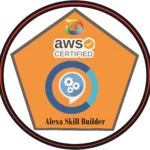
AWS Certified Alexa Skill Builder – Specialty with Diana’s
Who is this course for? The “AWS Certified Alexa Skill Builder – Specialty with Diana’s” course is designed for individuals who want to become proficient in building and deploying Alexa skills using the Amazon Web Services (AWS) platform. This course is ideal for developers, software engineers, and individuals interested in voice technology and creating innovative voice experiences with Alexa.
The Tools We Use: Throughout this course, you will gain practical experience with a range of tools and technologies provided by AWS for building Alexa skills. These tools may include the Alexa Skills Kit (ASK), AWS Lambda, AWS CloudFormation, AWS DynamoDB, and other relevant AWS services and frameworks.
What You’ll Learn
By enrolling in the “AWS Certified Alexa Skill Builder – Specialty with Diana’s” course, you will acquire the knowledge and skills necessary to develop and deploy high-quality Alexa skills. The course covers various topics, including:
- Introduction to Voice Technology and Alexa: Gain a comprehensive understanding of voice technology, the Alexa ecosystem, and the role of AWS in building Alexa skills.
- Alexa Skill Design and Development: Learn the process of designing and developing Alexa skills using the Alexa Skills Kit (ASK), including interaction models, intents, slots, and responses.
- AWS Services for Alexa Skill Building: Explore AWS services and features that are essential for building Alexa skills, such as AWS Lambda for serverless execution, AWS DynamoDB for data storage, and AWS CloudFormation for infrastructure deployment.
- Voice User Interface (VUI) Design: Master the principles of designing a compelling and intuitive voice user interface (VUI) for Alexa skills, focusing on user-centric design and best practices.
- Skill Testing and Certification: Understand the process of testing and debugging Alexa skills, ensuring compliance with Alexa certification requirements, and preparing skills for deployment.
- Skill Deployment and Management: Learn how to deploy Alexa skills to the Alexa Skills Store, manage skill updates and versioning, and monitor skill performance using AWS tools and services.
- Skill Optimization and Analytics: Explore techniques for improving Alexa skill performance, leveraging analytics and user feedback to enhance user engagement and satisfaction.
- Skill Security and Privacy: Understand the security considerations and best practices for developing secure and privacy-aware Alexa skills, protecting user data and maintaining user trust.
Prerequisites
To make the most of this course, participants should have prior experience with software development and familiarity with programming concepts. Basic knowledge of AWS services and familiarity with cloud computing concepts would be beneficial. Additionally, a keen interest in voice technology and a desire to become an AWS Certified Alexa Skill Builder are essential prerequisites for this course.
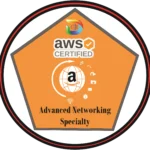
AWS Certified Advanced Networking – Specialty with Diana’s
Course Overview: Welcome to the AWS Certified Advanced Networking – Specialty course with Diana’s! In this comprehensive training program, we will dive deep into the advanced networking concepts and practices within the Amazon Web Services (AWS) environment. Whether you are a network engineer, a solutions architect, or an IT professional looking to enhance your networking skills on AWS, this course is designed to provide you with the knowledge and expertise required to become an AWS Certified Advanced Networking – Specialty. Who is this course for: This course is ideal for individuals who have a solid understanding of basic networking concepts and are looking to specialize in advanced networking within the AWS ecosystem. The course is suitable for:- Network Engineers: Professionals who want to enhance their networking skills specifically on AWS and obtain the AWS Certified Advanced Networking – Specialty certification.
- Solutions Architects: Individuals responsible for designing and implementing network architectures on AWS and aiming to gain a deeper understanding of advanced networking concepts.
- IT Professionals: Those interested in expanding their knowledge of AWS networking services and developing the skills needed to optimize network performance and security.
Tools We Use
Throughout this course, we will work extensively with various tools and services provided by AWS to build and manage advanced networking solutions. Some of the tools we will use include:- Amazon Virtual Private Cloud (VPC): We will explore VPC components, such as subnets, route tables, security groups, and network access control lists (ACLs), to create and configure a secure network environment.
- AWS Direct Connect: We will learn how to establish dedicated network connections from on-premises data centers to AWS, enabling faster and more reliable network access.
- Elastic Load Balancing (ELB): We will utilize ELB to distribute incoming traffic across multiple AWS resources to improve availability and fault tolerance.
- AWS Global Accelerator: We will leverage this service to improve the performance and availability of applications running across regions, utilizing the AWS global network infrastructure.
- AWS Transit Gateway: We will explore how Transit Gateway simplifies network connectivity between multiple VPCs, VPNs, and on-premises networks.
- Advanced networking architectures and design principles on AWS.
- How to optimize network performance, throughput, and latency.
- Techniques for securing network traffic and implementing advanced network security measures.
- How to configure and troubleshoot network connectivity in complex environments.
- Best practices for integrating on-premises networks with AWS using various networking services.
- How to use AWS tools and services effectively to build and manage advanced networking solutions.
- Strategies for network automation and scalability using AWS networking services.
Prerequisites
To get the most out of this course, it is recommended that you have the following prerequisites:- Foundational knowledge of basic networking concepts, including TCP/IP, DNS, routing, and subnetting.
- Familiarity with core AWS services, such as Amazon EC2, Amazon S3, and Amazon IAM.
- Experience working with AWS networking services, such as Amazon VPC, Elastic Load Balancing, and AWS Direct Connect.
- Basic understanding of network security principles, including firewalls, access control lists, and encryption.
DIANA AWS certification is a level of Amazon Web Services cloud expertise that an IT professional obtains after passing one or more exams the public cloud provider offers.
IT pros gain AWS certifications to demonstrate and validate technical cloud knowledge and skills. AWS provides different certification exams for cloud engineers, administrators and architects. AWS certification lasts for two years, and IT pros can recertify their specific certification after it expires. There are hundreds of testing centers around the world in which to take the exams.
Types of AWS certifications
AWS offers six different certifications, grouped into four main paths — Cloud Practitioner, Architect, Developer, and Operations — and additional subpaths. There is also a Specialty Path, divided into five subpaths.
Cloud Practitioner Path
This certification path is intended for individuals who are looking to build and validate overall understanding of the AWS cloud. This path is useful for individuals in technical, managerial, sales, purchasing or financial roles who work with the AWS cloud.
Arcitect Path
This path is designed for solutions architects, solution design engineers and anyone who wants to learn how to design applications and systems on AWS. There are two architect subpaths:

AWS Certified Solutions Architect -- Associate
Architect Path
This path is designed for solutions architects, solution design engineers and anyone who wants to learn how to design applications and systems on AWS. There are two architect subpaths:
- AWS Certified Solutions Architect — Associate: For this certification level, the student must demonstrate knowledge of how to design, manage and distribute applications in conjunction with AWS tools. These IT pros must be able to design and deploy highly available and scalable systems in AWS, as well as proper security, disaster recovery (DR) and troubleshooting concepts. The certification recommends IT pros have one year or more of hands-on experience designing and deploying highly available and fault-tolerant AWS systems.
- AWS Certified Solutions Architect — Professional: For this certification level, it’s a prerequisite to complete the Associate-level AWS Certified Solutions Architect certification exam and have two years or more experience designing and deploying of AWS cloud architectures. IT pros must demonstrate knowledge of complex AWS applications, including how to move applications to AWS, optimize AWS architecture for an enterprise and apply application design best practices.

AWS Cloud Practitioner
Cloud Practitioner Path
This certification path is intended for individuals who are looking to build and validate overall understanding of the AWS cloud. This path is useful for individuals in technical, managerial, sales, purchasing or financial roles who work with the AWS cloud.
Developer Path
This certification is designed for software developers who want to learn how to develop cloud applications on AWS. There are two developer subpaths:
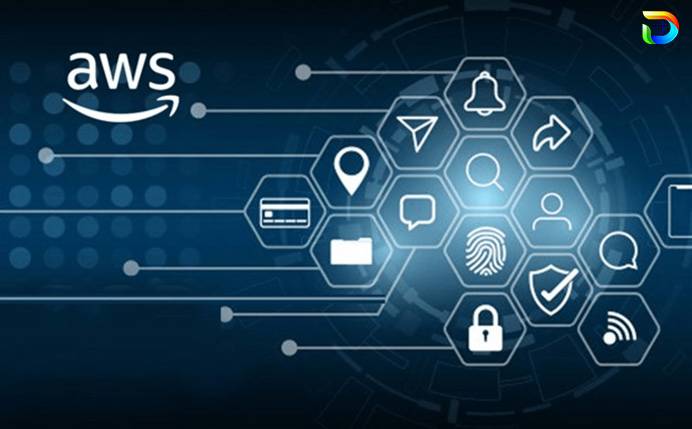
AWS Certified Developer -- Associate
Developer Path
This certification is designed for software developers who want to learn how to develop cloud applications on AWS. There are two developer subpaths:
- AWS Certified Developer — Associate: IT pros must prove code-level knowledge for AWS application design, development and maintenance, along with a thorough knowledge of the AWS architecture. The certification recommends having one year-plus of experience in maintaining AWS-based applications.
- AWS Certified DevOps Engineer — Professional: This certification requires that applicants compete the Associate-level AWS Certified Developer or AWS Certified SysOps Administrator certification exams and have two or more years of experience provisioning and managing AWS architectures. Students must comprehend specific concepts involving continuous deployment (CD) and automation of AWS processes and know how to implement them into AWS architectures.

AWS Certified DevOps Engineer -- Professional
- AWS Certified SysOps Administrator — Associate: Provide knowledge of deployment and operations related to AWS architecture and services, including application deployment and data migration; students also possess basic system administrator skills in security, provisioning and systems management. The certification recommends one year or more of experience with AWS system operations.
- AWS Certified DevOps Engineer — Professional: This certification requires that applicants compete the Associate-level AWS Certified Developer or AWS Certified SysOps Administrator certification exams and have two or more years of experience provisioning and managing AWS architectures. Students must comprehend specific concepts involving continuous deployment (CD) and automation of AWS processes and know how to implement them into AWS architectures.
Operations Path
There are two subpaths are designed for sysops administrators, systems administrators and those in a DevOps role who want to learn how to create automatable and repeatable deployments of applications, networks and systems on the AWS platform.
Speciality Path
AWS also offers five specialty certifications in technical areas. The five subpaths are:
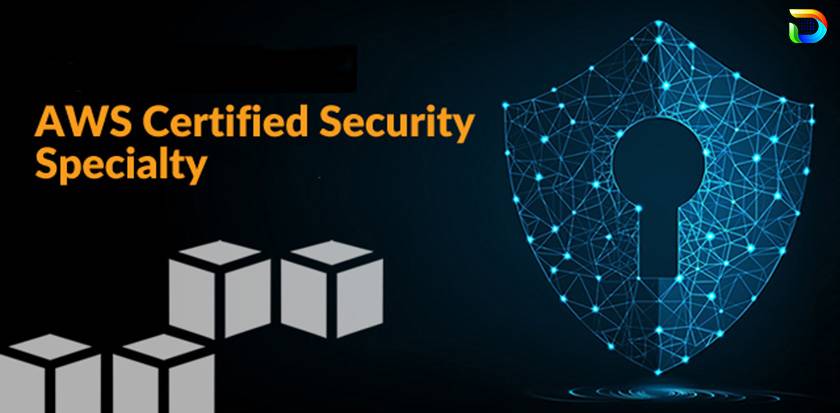
AWS Certified Security -- Specialty
- AWS Certified Security is intended for individuals who perform a security role with at least two years of hands-on experience securing AWS workloads. Certificate holders can demonstrate:
- Knowledge of specialized data classifications and AWS data protection mechanisms
- Understanding of data encryption methods and AWS mechanisms to implement them
- Knowledge of secure Internet protocols and AWS mechanisms to implement them
- A working knowledge of AWS security services and features of services to provide a secure production environment
- Competency gained from two or more years of production deployment experience using AWS security services and features
- Ability to make tradeoff decisions with regard to cost, security and deployment complexity given a set of application requirements
- Understanding of security operations and risk
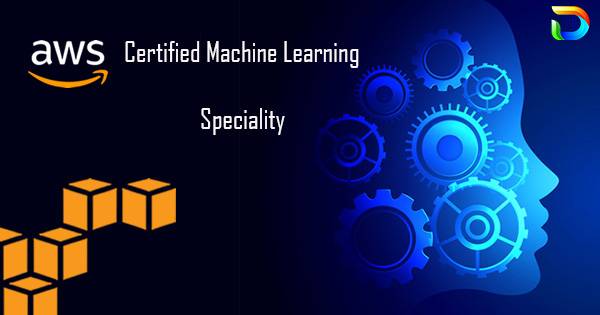
AWS Certified Machine Learning -- Specialty
- Developers, data scientists, data platform engineers and business decision makers can use this training to learn how to apply machine learning (ML), artificial intelligence (AI), and deep learning to their businesses unlocking new insights and value.
AWS courses Offered by Diana’s

AWS Certified SysOps Administrator – Associate with Diana’s
Who is this course for? The “AWS Certified SysOps Administrator – Associate with Diana’s” course is designed for individuals aspiring to become AWS SysOps Administrators or those currently working in a system operations role who want to validate their skills and knowledge in managing and operating applications on the AWS platform. This course is suitable for system administrators, operations engineers, and IT professionals aiming to enhance their career prospects in cloud computing. The Tools We Use: Throughout this course, we will utilize a variety of tools and services offered by Amazon Web Services (AWS). These may include AWS Management Console, AWS Command Line Interface (CLI), AWS Identity and Access Management (IAM), Amazon EC2 instances, Amazon RDS databases, AWS CloudWatch for monitoring, AWS Elastic Beanstalk for application deployment, and more.What You’ll Learn
By enrolling in the “AWS Certified SysOps Administrator – Associate with Diana’s” course, you will gain a comprehensive understanding of various AWS services and best practices for system operations. The course covers the following key topics:- AWS Fundamentals: Explore the foundational concepts of AWS, including its global infrastructure, core services, and architectural principles.
- Identity and Access Management (IAM): Learn how to manage user access and permissions using IAM, create security groups, and implement multi-factor authentication (MFA).
- EC2 Instances and Networking: Understand the deployment and management of Amazon EC2 instances, including launching instances, configuring networking, and implementing load balancing and auto scaling.
- Storage and Content Delivery: Explore AWS storage services such as Amazon S3 for object storage, Amazon EBS for block storage, and Amazon CloudFront for content delivery.
- Databases on AWS: Learn about Amazon RDS for managed relational databases, Amazon DynamoDB for NoSQL databases, and Amazon Redshift for data warehousing.
- Monitoring and Metrics: Gain insights into monitoring AWS resources using CloudWatch, setting up alarms, creating custom metrics, and analyzing logs.
- High Availability and Fault Tolerance: Discover strategies to achieve high availability and fault tolerance using AWS services like Elastic Load Balancing, Route 53, and Auto Scaling.
- Security and Compliance: Understand AWS security best practices, including securing network communications, encrypting data at rest and in transit, and managing compliance.
- Deployment and Operations: Learn about AWS deployment and management services such as AWS Elastic Beanstalk, AWS OpsWorks, and AWS CloudFormation.
- Cost Optimization: Explore techniques to optimize costs in AWS, including rightsizing instances, leveraging AWS Cost Explorer, and implementing cost allocation tags.
Prerequisites
To make the most of this course, participants should have a basic understanding of cloud computing concepts and general IT knowledge. Familiarity with Linux command line interface (CLI) and networking fundamentals would be beneficial. No prior experience with AWS is required, but a strong interest in cloud computing and a desire to pursue a career as a SysOps Administrator are essential prerequisites for this course.
AWS Certified Solutions Architect – Associate with Diana’s
Who is this course for? The “AWS Certified Solutions Architect – Associate with Diana’s” course is designed for IT professionals who are interested in becoming certified in AWS solutions architecture. This course is suitable for system administrators, developers, and individuals looking to enhance their knowledge and skills in designing and implementing scalable and reliable applications on the Amazon Web Services (AWS) platform. The Tools We Use: Throughout this course, we will extensively utilize various AWS services and tools. Some of the key tools and technologies covered in this course may include Amazon EC2 (Elastic Compute Cloud), Amazon S3 (Simple Storage Service), Amazon RDS (Relational Database Service), Amazon VPC (Virtual Private Cloud), AWS Lambda, and AWS CloudFormation. Additionally, we will explore the AWS Management Console and the AWS Command Line Interface (CLI) for managing and deploying AWS resources.What You’ll Learn
By enrolling in the “AWS Certified Solutions Architect – Associate with Diana’s” course, you will gain a comprehensive understanding of AWS architecture and the skills necessary to design, deploy, and manage applications on the AWS platform. The course covers the following key areas:- AWS Fundamentals: Get introduced to the core concepts of AWS, including the global infrastructure, key services, and account management.
- Compute Services: Learn about the various compute services offered by AWS, such as EC2 instances, Auto Scaling, and Elastic Beanstalk, and how to architect scalable and resilient applications.
- Storage and Database Services: Explore AWS storage services like S3, Glacier, and EBS, as well as database services like RDS and DynamoDB, to effectively manage data storage and retrieval in your applications.
- Networking and Content Delivery: Understand AWS networking concepts, including VPC, Route 53, and CloudFront, to design secure and high-performance network architectures.
- Security and Identity Management: Learn about AWS security features, including IAM (Identity and Access Management), AWS Organizations, and key management services, to ensure the security of your AWS resources.
- Application Integration and Messaging: Discover how to integrate your applications with AWS services like SQS (Simple Queue Service), SNS (Simple Notification Service), and SWF (Simple Workflow Service) for efficient communication and coordination.
- Monitoring, Logging, and Troubleshooting: Gain insights into AWS monitoring and logging services like CloudWatch, CloudTrail, and X-Ray, and learn troubleshooting techniques to maintain application health and performance.
- Architecting for High Availability and Scalability: Learn to design fault-tolerant and highly available architectures using AWS services such as ELB (Elastic Load Balancer), Auto Scaling, and Route 53.
Prerequisites
To make the most of this course, participants should have a basic understanding of cloud computing concepts and familiarity with IT infrastructure and networking principles. Basic knowledge of operating systems, such as Linux and Windows, and experience with scripting or programming languages would be beneficial. Additionally, familiarity with general AWS services and concepts will be helpful but is not mandatory.
AWS Certified Security – Specialty with Diana’s
Who is this course for? The “AWS Certified Security – Specialty with Diana’s” course is designed for IT professionals, security engineers, and system administrators who want to enhance their knowledge and expertise in securing applications and infrastructure on the Amazon Web Services (AWS) platform. This course is suitable for individuals who are preparing to take the AWS Certified Security – Specialty certification exam or those who wish to deepen their understanding of AWS security best practices. The Tools We Use: Throughout this course, we will utilize various tools and services provided by AWS to implement and manage security measures. Some of the key tools and technologies covered in this course may include AWS Identity and Access Management (IAM), AWS CloudTrail, AWS Security Hub, AWS GuardDuty, AWS WAF (Web Application Firewall), AWS Inspector, and AWS Key Management Service (KMS).What You’ll Learn
By enrolling in the “AWS Certified Security – Specialty with Diana’s” course, you will gain comprehensive knowledge and skills in securing AWS environments. The course covers a wide range of topics, including:- AWS Security Fundamentals: Understand the core principles of AWS security, shared responsibility model, and the various AWS security services available.
- Identity and Access Management (IAM): Learn how to create and manage AWS identities, roles, and permissions to control access to AWS resources effectively.
- Data Protection: Explore techniques and services for encrypting data at rest and in transit, managing encryption keys, and implementing secure data storage solutions.
- Network Security: Understand AWS network security features, including Virtual Private Cloud (VPC), security groups, network ACLs, and AWS PrivateLink.
- Incident Response and Compliance: Discover how to effectively respond to security incidents, implement logging and monitoring, and ensure compliance with relevant regulations and industry standards.
- Infrastructure Security: Learn best practices for securing AWS infrastructure, including EC2 instances, databases, serverless architectures, and containerized applications.
- Web Application Security: Explore techniques for protecting web applications hosted on AWS, including using AWS WAF, securing APIs, and implementing secure coding practices.
- Security Automation and DevSecOps: Understand how to automate security tasks using AWS services and integrate security into the DevOps workflow to achieve continuous security and compliance.
Prerequisites
To make the most of this course, participants should have a solid understanding of AWS fundamentals and experience working with AWS services. Familiarity with basic networking concepts and security principles will be beneficial. It is recommended to have hands-on experience in deploying and managing AWS resources. A strong desire to enhance one’s skills in AWS security and a commitment to achieving the AWS Certified Security – Specialty certification are essential prerequisites for this course.
AWS Certified Security – Specialty with Diana’s
Who is this course for? The “AWS Certified Security – Specialty with Diana’s” course is designed for IT professionals, security engineers, and system administrators who want to enhance their knowledge and expertise in securing applications and infrastructure on the Amazon Web Services (AWS) platform. This course is suitable for individuals who are preparing to take the AWS Certified Security – Specialty certification exam or those who wish to deepen their understanding of AWS security best practices. The Tools We Use: Throughout this course, we will utilize various tools and services provided by AWS to implement and manage security measures. Some of the key tools and technologies covered in this course may include AWS Identity and Access Management (IAM), AWS CloudTrail, AWS Security Hub, AWS GuardDuty, AWS WAF (Web Application Firewall), AWS Inspector, and AWS Key Management Service (KMS).What You’ll Learn
By enrolling in the “AWS Certified Security – Specialty with Diana’s” course, you will gain comprehensive knowledge and skills in securing AWS environments. The course covers a wide range of topics, including:- AWS Security Fundamentals: Understand the core principles of AWS security, shared responsibility model, and the various AWS security services available.
- Identity and Access Management (IAM): Learn how to create and manage AWS identities, roles, and permissions to control access to AWS resources effectively.
- Data Protection: Explore techniques and services for encrypting data at rest and in transit, managing encryption keys, and implementing secure data storage solutions.
- Network Security: Understand AWS network security features, including Virtual Private Cloud (VPC), security groups, network ACLs, and AWS PrivateLink.
- Incident Response and Compliance: Discover how to effectively respond to security incidents, implement logging and monitoring, and ensure compliance with relevant regulations and industry standards.
- Infrastructure Security: Learn best practices for securing AWS infrastructure, including EC2 instances, databases, serverless architectures, and containerized applications.
- Web Application Security: Explore techniques for protecting web applications hosted on AWS, including using AWS WAF, securing APIs, and implementing secure coding practices.
- Security Automation and DevSecOps: Understand how to automate security tasks using AWS services and integrate security into the DevOps workflow to achieve continuous security and compliance.
Prerequisites
To make the most of this course, participants should have a solid understanding of AWS fundamentals and experience working with AWS services. Familiarity with basic networking concepts and security principles will be beneficial. It is recommended to have hands-on experience in deploying and managing AWS resources. A strong desire to enhance one’s skills in AWS security and a commitment to achieving the AWS Certified Security – Specialty certification are essential prerequisites for this course.
AWS Certified Kubernetes – Specialty with Diana’s
Who is this course for? This course is designed for individuals who want to enhance their skills in managing and deploying applications on Kubernetes using Amazon Web Services (AWS). It is suitable for software developers, system administrators, DevOps engineers, and anyone interested in gaining expertise in AWS Kubernetes services.The tools we use
Throughout the course, we will leverage several tools and technologies to work with Kubernetes on AWS. These include:- Amazon Elastic Kubernetes Service (EKS): We will extensively use EKS to create and manage Kubernetes clusters.
- AWS CLI: The AWS Command Line Interface (CLI) will be used for interacting with various AWS services and resources.
- AWS Management Console: We will utilize the web-based console to configure and manage EKS clusters and related services.
- kubectl: This command-line tool is used for interacting with Kubernetes clusters, and we will utilize it to deploy and manage applications.
- Helm: Helm is a package manager for Kubernetes that simplifies the deployment and management of applications. We will utilize Helm charts to deploy and manage applications on EKS.
What you’ll learn
By the end of this course, you will have a comprehensive understanding of AWS Kubernetes services and be well-prepared to pass the AWS Certified Kubernetes – Specialty exam. You will learn the following key concepts and skills:- Understanding Kubernetes: Gain a deep understanding of Kubernetes architecture, core components, and its role in container orchestration.
- Deploying Kubernetes on AWS: Learn how to set up and manage Kubernetes clusters using Amazon EKS, including cluster creation, scaling, and monitoring.
- Application Deployment: Master the deployment of applications on EKS using various methods, such as using YAML manifests, Helm charts, and deploying from container registries.
- Networking and Security: Explore networking and security considerations in Kubernetes on AWS, including managing VPC configurations, load balancers, and securing cluster communication.
- Cluster Operations and Management: Learn how to operate and manage EKS clusters effectively, including scaling, patching, and troubleshooting common issues.
- Monitoring and Logging: Understand how to monitor and log Kubernetes clusters using AWS services like CloudWatch, CloudTrail, and AWS X-Ray.
- Autoscaling and High Availability: Discover techniques to autoscale Kubernetes workloads based on demand and ensure high availability using AWS services like Auto Scaling Groups and EKS managed node groups.
- Advanced Topics: Dive into advanced topics such as deploying stateful applications, managing storage in Kubernetes, and integrating with other AWS services like Amazon RDS and Amazon S3.
Prerequisites
To make the most of this course, you should have prior experience with AWS services and basic knowledge of Kubernetes concepts. Familiarity with containerization and Docker will also be beneficial. It is recommended to have some hands-on experience with AWS services, particularly EC2, VPC, and IAM. A basic understanding of networking and Linux command-line will help you navigate the course content effectively.
AWS Certified DevOps Engineer – Professional with Diana’s
Who is this course for? The “AWS Certified DevOps Engineer – Professional with Diana’s” course is tailored for experienced IT professionals and DevOps engineers who aim to master the advanced concepts and best practices of deploying and managing applications on Amazon Web Services (AWS) cloud platform. This course is ideal for individuals looking to enhance their expertise in building scalable, reliable, and secure AWS-based applications using DevOps principles.The Tools We Use
Throughout this course, you will gain hands-on experience with a comprehensive set of tools and services offered by AWS. Some of the key tools and technologies covered in the course include:- AWS Elastic Beanstalk: A fully managed service for deploying and scaling web applications and services.
- AWS CodePipeline: A continuous integration and continuous delivery (CI/CD) service that automates the build, test, and deployment of applications.
- AWS CloudFormation: A service for provisioning and managing AWS resources through templates.
- AWS Lambda: A serverless computing service for running code without provisioning or managing servers.
- AWS Elastic Container Service (ECS): A container management service for deploying and scaling Docker containers.
- AWS Identity and Access Management (IAM): A service for managing access to AWS resources securely.
- AWS CloudWatch: A monitoring service for AWS resources and applications.
- AWS Elastic Beanstalk: A service for automatic scaling and application health monitoring.
What You’ll Learn
By enrolling in the “AWS Certified DevOps Engineer – Professional with Diana’s” course, you will acquire in-depth knowledge and skills required to excel in the AWS DevOps environment. The course covers a wide range of topics, including:- Advanced AWS Concepts: Dive into advanced AWS services and architecture, understanding their use cases and benefits.
- Infrastructure as Code: Learn how to define and manage AWS infrastructure using code and templates with AWS CloudFormation.
- Continuous Integration and Continuous Delivery (CI/CD): Implement CI/CD pipelines using AWS CodePipeline and other supporting services.
- Serverless Applications: Explore AWS Lambda and its integration with other AWS services to build serverless applications.
- Containerization: Utilize AWS ECS and Docker to manage and orchestrate containerized applications effectively.
- Monitoring and Logging: Set up monitoring and logging solutions using AWS CloudWatch and related services to ensure application health and performance.
- Security Best Practices: Implement secure AWS architectures, adhere to best security practices, and manage IAM for secure access control.
- High Availability and Scalability: Design and deploy highly available and scalable applications on AWS to meet user demands.
- Disaster Recovery: Plan and implement disaster recovery strategies to ensure business continuity.
Prerequisites
To make the most of this course, participants should have prior experience in working with AWS services and a solid understanding of cloud computing concepts. Familiarity with DevOps principles, CI/CD practices, and basic programming skills are essential prerequisites. Ideally, candidates should have completed the AWS Certified Developer – Associate or AWS Certified SysOps Administrator – Associate certification, or possess equivalent knowledge and experience in AWS.
AWS Certified Developer – Associate with Diana’s
Who is this course for: This course is designed for individuals who are interested in becoming AWS Certified Developers – Associate level. It is suitable for software developers, web developers, and IT professionals who want to enhance their skills in developing applications on the Amazon Web Services (AWS) platform.The tools we use
Throughout this course, we will utilize a range of tools and services provided by AWS to develop and deploy applications. Some of the key tools and services covered in this course include:- AWS Management Console: The web-based interface for accessing and managing various AWS services.
- AWS CLI (Command Line Interface): A command-line tool that allows you to interact with AWS services using commands.
- AWS SDKs (Software Development Kits): Libraries and tools that enable developers to integrate AWS services into their applications using programming languages such as Java, Python, and .NET.
- AWS Elastic Beanstalk: A fully managed service for deploying and scaling web applications.
- AWS Lambda: A serverless compute service that lets you run code without provisioning or managing servers.
- AWS DynamoDB: A fast and flexible NoSQL database service for applications that require low-latency data access.
- AWS S3 (Simple Storage Service): An object storage service for storing and retrieving any amount of data from anywhere on the web.
- AWS CloudFormation: A service that allows you to create and manage AWS resources using JSON or YAML templates.
- AWS Identity and Access Management (IAM): A service for managing user access and permissions to AWS resources.
- AWS architecture and core services: Learn about the fundamentals of AWS, including EC2 instances, S3 buckets, VPCs, and security best practices.
- Application deployment and management: Explore techniques for deploying and managing applications using services like Elastic Beanstalk, AWS CloudFormation, and AWS CLI.
- Serverless application development: Dive into the world of serverless computing with AWS Lambda, API Gateway, and DynamoDB, and learn how to build scalable and cost-effective applications.
- Application integration and messaging: Discover how to integrate your applications with other AWS services like SNS, SQS, and Simple Workflow Service (SWF).
- Monitoring, troubleshooting, and debugging: Learn how to monitor and troubleshoot your applications using AWS CloudWatch, X-Ray, and other debugging tools.
- Security and authentication: Understand how to secure your applications and implement authentication mechanisms using IAM, Cognito, and other AWS security services.
Prerequisites
To make the most of this course, it is recommended that you have prior programming experience and a basic understanding of web technologies such as HTML, CSS, and JavaScript. Familiarity with cloud computing concepts and general knowledge of AWS services will also be beneficial.
AWS Certified Cloud Practitioner with Diana’s
Who is this course for? The “AWS Certified Cloud Practitioner with Diana’s” course is designed for individuals who are new to Amazon Web Services (AWS) and want to gain a foundational understanding of cloud computing and AWS services. This course is ideal for IT professionals, system administrators, developers, and anyone interested in pursuing a career in cloud computing or AWS-related roles. The Tools We Use: Throughout this course, you will have hands-on experience with various tools and services provided by Amazon Web Services. These tools may include the AWS Management Console, AWS Command Line Interface (CLI), AWS Elastic Beanstalk, AWS Identity and Access Management (IAM), and AWS Simple Storage Service (S3), among others.What You’ll Learn
By enrolling in the “AWS Certified Cloud Practitioner with Diana’s” course, you will gain a comprehensive understanding of AWS cloud concepts, services, and best practices. The course covers the following key topics:- Introduction to AWS: Explore the fundamentals of cloud computing, the AWS global infrastructure, and the core services offered by AWS.
- AWS Architecture and Security: Understand the architectural principles of AWS, including regions, availability zones, and data centers. Learn about AWS security measures, compliance, and shared responsibility models.
- AWS Services: Gain familiarity with essential AWS services, such as EC2 (Elastic Compute Cloud), S3 (Simple Storage Service), RDS (Relational Database Service), and VPC (Virtual Private Cloud).
- AWS Pricing and Billing: Learn about AWS pricing models, cost optimization strategies, and how to estimate costs for various AWS services.
- AWS Deployment and Management: Explore AWS deployment options, including AWS Elastic Beanstalk, AWS CloudFormation, and AWS OpsWorks. Understand how to manage and monitor AWS resources effectively.
- AWS Identity and Access Management (IAM): Discover how to control access to AWS resources using IAM, create users and groups, and apply security best practices.
- AWS Well-Architected Framework: Learn about the five pillars of the AWS Well-Architected Framework: operational excellence, security, reliability, performance efficiency, and cost optimization.
- Exam Preparation: Get guidance and practice exercises to prepare for the AWS Certified Cloud Practitioner exam, including exam format, study tips, and sample questions.
Prerequisites
No prior experience with AWS is required for this course. However, a basic understanding of cloud computing concepts and general IT knowledge will be beneficial. Familiarity with networking and storage concepts will also be advantageous. This course is suitable for beginners who want to start their journey into AWS cloud computing.
AWS Certified Database – Specialty with Diana’s
Who is this course for? The “AWS Certified Database – Specialty with Diana’s” course is designed for professionals who want to validate their expertise in designing, deploying, and managing AWS database solutions. This course is suitable for database administrators, solutions architects, and individuals working with databases in an AWS environment. It is ideal for those who wish to enhance their skills and earn the prestigious AWS Certified Database – Specialty certification. The Tools We Use: Throughout this course, you will gain hands-on experience with a variety of tools and services provided by Amazon Web Services (AWS) for managing databases. These tools may include Amazon RDS (Relational Database Service), Amazon DynamoDB, Amazon Aurora, Amazon Redshift, AWS Database Migration Service, and others.What You’ll Learn
By enrolling in the “AWS Certified Database – Specialty with Diana’s” course, you will acquire comprehensive knowledge of AWS database services and develop the skills needed to design, deploy, and manage highly available, scalable, and secure database solutions. The course covers various topics, including:- AWS Database Fundamentals: Understand the core concepts and services of AWS databases, including relational databases, NoSQL databases, data warehousing, and data migration strategies.
- Database Design and Architecture: Learn how to design efficient, scalable, and highly available database solutions using AWS services and best practices. Explore concepts such as sharding, replication, partitioning, and data consistency models.
- Database Deployment and Management: Gain practical experience in deploying and managing AWS database services, including provisioning, monitoring, and optimizing database performance. Learn about backup and restore strategies, security configurations, and disaster recovery options.
- Data Migration and Integration: Discover techniques for migrating databases to AWS, both online and offline, using AWS Database Migration Service (DMS) and other tools. Learn about data integration with other AWS services and third-party systems.
- Database Security and Compliance: Understand the security features and best practices for protecting AWS databases. Learn about encryption options, access control mechanisms, auditing, and compliance with industry standards and regulations.
- Database Performance and Optimization: Learn how to monitor, analyze, and optimize the performance of AWS databases. Explore performance tuning techniques, indexing strategies, caching mechanisms, and troubleshooting approaches.
- Database Monitoring and Troubleshooting: Gain insights into monitoring tools and practices for AWS databases. Learn how to detect and resolve common database issues, handle performance bottlenecks, and troubleshoot connectivity problems.
- High Availability and Disaster Recovery: Explore strategies for achieving high availability and fault tolerance in AWS database solutions. Learn about database replication, automated backups, multi-region deployments, and disaster recovery planning.
Prerequisites
To make the most of this course, participants should have a solid understanding of basic database concepts, such as data modeling, SQL queries, and database management principles. Familiarity with AWS fundamentals, including core services like EC2 and S3, would be beneficial. It is recommended to have some hands-on experience with AWS services and databases. Additionally, a strong desire to advance one’s skills in AWS database technologies and pursue the AWS Certified Database – Specialty certification is essential.
AWS Certified Big Data – Specialty with Diana’s
Who is this course for? This course is designed for data professionals, solution architects, developers, and anyone interested in gaining expertise in big data solutions using Amazon Web Services (AWS). Whether you are a beginner or an experienced professional looking to enhance your knowledge, this course is tailored to help you prepare for the AWS Certified Big Data – Specialty exam. The tools we use: Throughout this course, we will extensively cover various AWS services and tools that are crucial for working with big data. Some of the key tools we will focus on include:- Amazon S3 (Simple Storage Service)
- Amazon Redshift
- Amazon EMR (Elastic MapReduce)
- AWS Glue
- Amazon Kinesis
- AWS Lambda
- Amazon QuickSight
- AWS Data Pipeline
- Amazon Athena
- Amazon DynamoDB
What you’ll learn
By the end of this course, you will have a deep understanding of big data concepts, architecture, and how to implement them using AWS services. The course will cover the following topics:- Design and implement AWS big data services to process and analyze large datasets.
- Use AWS services to optimize the data lifecycle and extract valuable insights from data.
- Understand and apply big data architectural patterns to solve real-world business problems.
- Implement best practices for data security, data encryption, and data access control in an AWS environment.
- Configure and manage big data workflows using AWS services like EMR, Glue, and Data Pipeline.
- Integrate and analyze streaming data using Amazon Kinesis.
- Build scalable and resilient data processing solutions using AWS Lambda.
- Create interactive and visual reports using Amazon QuickSight for data visualization.
- Implement serverless data transformation and orchestration using AWS Glue.
- Understand data warehousing concepts and utilize Amazon Redshift for analytics.
Prerequisites
To make the most out of this course, it is recommended that you have the following prerequisites:- Familiarity with basic AWS concepts and services.
- A basic understanding of big data technologies and concepts.
- Experience with at least one programming language (Python, Java, or Scala).
- Knowledge of SQL for data querying and manipulation.

AWS Certified Alexa Skill Builder – Specialty with Diana’s
Who is this course for? The “AWS Certified Alexa Skill Builder – Specialty with Diana’s” course is designed for individuals who want to become proficient in building and deploying Alexa skills using the Amazon Web Services (AWS) platform. This course is ideal for developers, software engineers, and individuals interested in voice technology and creating innovative voice experiences with Alexa.
The Tools We Use: Throughout this course, you will gain practical experience with a range of tools and technologies provided by AWS for building Alexa skills. These tools may include the Alexa Skills Kit (ASK), AWS Lambda, AWS CloudFormation, AWS DynamoDB, and other relevant AWS services and frameworks.
What You’ll Learn
By enrolling in the “AWS Certified Alexa Skill Builder – Specialty with Diana’s” course, you will acquire the knowledge and skills necessary to develop and deploy high-quality Alexa skills. The course covers various topics, including:
- Introduction to Voice Technology and Alexa: Gain a comprehensive understanding of voice technology, the Alexa ecosystem, and the role of AWS in building Alexa skills.
- Alexa Skill Design and Development: Learn the process of designing and developing Alexa skills using the Alexa Skills Kit (ASK), including interaction models, intents, slots, and responses.
- AWS Services for Alexa Skill Building: Explore AWS services and features that are essential for building Alexa skills, such as AWS Lambda for serverless execution, AWS DynamoDB for data storage, and AWS CloudFormation for infrastructure deployment.
- Voice User Interface (VUI) Design: Master the principles of designing a compelling and intuitive voice user interface (VUI) for Alexa skills, focusing on user-centric design and best practices.
- Skill Testing and Certification: Understand the process of testing and debugging Alexa skills, ensuring compliance with Alexa certification requirements, and preparing skills for deployment.
- Skill Deployment and Management: Learn how to deploy Alexa skills to the Alexa Skills Store, manage skill updates and versioning, and monitor skill performance using AWS tools and services.
- Skill Optimization and Analytics: Explore techniques for improving Alexa skill performance, leveraging analytics and user feedback to enhance user engagement and satisfaction.
- Skill Security and Privacy: Understand the security considerations and best practices for developing secure and privacy-aware Alexa skills, protecting user data and maintaining user trust.
Prerequisites
To make the most of this course, participants should have prior experience with software development and familiarity with programming concepts. Basic knowledge of AWS services and familiarity with cloud computing concepts would be beneficial. Additionally, a keen interest in voice technology and a desire to become an AWS Certified Alexa Skill Builder are essential prerequisites for this course.

AWS Certified Advanced Networking – Specialty with Diana’s
Course Overview: Welcome to the AWS Certified Advanced Networking – Specialty course with Diana’s! In this comprehensive training program, we will dive deep into the advanced networking concepts and practices within the Amazon Web Services (AWS) environment. Whether you are a network engineer, a solutions architect, or an IT professional looking to enhance your networking skills on AWS, this course is designed to provide you with the knowledge and expertise required to become an AWS Certified Advanced Networking – Specialty. Who is this course for: This course is ideal for individuals who have a solid understanding of basic networking concepts and are looking to specialize in advanced networking within the AWS ecosystem. The course is suitable for:- Network Engineers: Professionals who want to enhance their networking skills specifically on AWS and obtain the AWS Certified Advanced Networking – Specialty certification.
- Solutions Architects: Individuals responsible for designing and implementing network architectures on AWS and aiming to gain a deeper understanding of advanced networking concepts.
- IT Professionals: Those interested in expanding their knowledge of AWS networking services and developing the skills needed to optimize network performance and security.
Tools We Use
Throughout this course, we will work extensively with various tools and services provided by AWS to build and manage advanced networking solutions. Some of the tools we will use include:- Amazon Virtual Private Cloud (VPC): We will explore VPC components, such as subnets, route tables, security groups, and network access control lists (ACLs), to create and configure a secure network environment.
- AWS Direct Connect: We will learn how to establish dedicated network connections from on-premises data centers to AWS, enabling faster and more reliable network access.
- Elastic Load Balancing (ELB): We will utilize ELB to distribute incoming traffic across multiple AWS resources to improve availability and fault tolerance.
- AWS Global Accelerator: We will leverage this service to improve the performance and availability of applications running across regions, utilizing the AWS global network infrastructure.
- AWS Transit Gateway: We will explore how Transit Gateway simplifies network connectivity between multiple VPCs, VPNs, and on-premises networks.
- Advanced networking architectures and design principles on AWS.
- How to optimize network performance, throughput, and latency.
- Techniques for securing network traffic and implementing advanced network security measures.
- How to configure and troubleshoot network connectivity in complex environments.
- Best practices for integrating on-premises networks with AWS using various networking services.
- How to use AWS tools and services effectively to build and manage advanced networking solutions.
- Strategies for network automation and scalability using AWS networking services.
Prerequisites
To get the most out of this course, it is recommended that you have the following prerequisites:- Foundational knowledge of basic networking concepts, including TCP/IP, DNS, routing, and subnetting.
- Familiarity with core AWS services, such as Amazon EC2, Amazon S3, and Amazon IAM.
- Experience working with AWS networking services, such as Amazon VPC, Elastic Load Balancing, and AWS Direct Connect.
- Basic understanding of network security principles, including firewalls, access control lists, and encryption.
Diana is helping thousands of organizations employees and universities students to transform at scale










